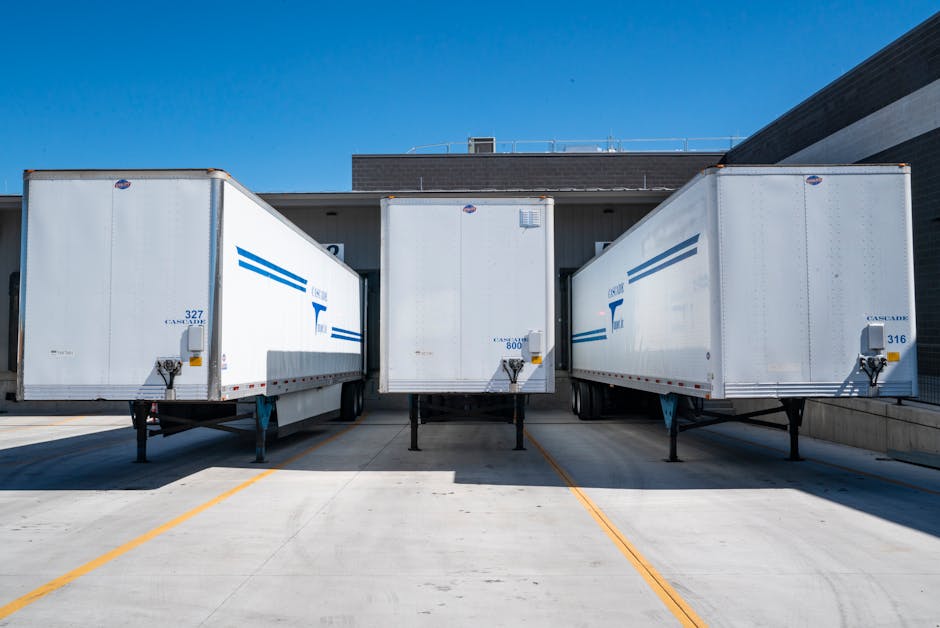

When it comes to trailer safety and performance, one cannot overlook the significance of a Tire Pressure Monitoring System (TPMS). This innovative technology serves as a crucial component in modern trailer management, providing real-time data on tire conditions to drivers. Understanding the importance of TPMS for trailer tire temperature is essential not only for ensuring safe travel but also for optimizing efficiency and preventing catastrophic failures.
TPMS for trailers offers a comprehensive solution to monitor tire pressure and temperature, alerting drivers to any potential issues before they escalate into dangerous situations. By keeping a close eye on tire conditions, drivers can make informed decisions, reducing the risk of blowouts, excessive wear, and other tire-related problems. This proactive approach to tire maintenance can save lives, time, and money.
Moreover, advancements in TPMS technology have made it possible to integrate these systems seamlessly into existing trailers. Whether you are hauling goods cross-country or towing a recreational vehicle for a weekend getaway, having a reliable TPMS in place ensures that you are always one step ahead of potential hazards. With the ability to provide real-time updates and alerts, TPMS helps maintain optimal tire performance, contributing to better fuel efficiency and reduced environmental impact.
Tow with peace of mind, knowing that TrailerWatchdog is standing guard. Learn more about how our state-of-the-art TPMS can transform your trailer into a smart trailer.
Importance of Monitoring Tire Temperature
Monitoring tire temperature is a critical aspect of trailer safety that often goes unnoticed. Tire temperature can significantly affect a trailer's performance and the safety of its cargo and passengers. High temperatures can lead to tire blowouts, which are not only dangerous but can also cause severe damage to the trailer and its contents.
One of the primary reasons why tire temperature monitoring is essential is because it helps in identifying underinflated tires. Underinflated tires generate more heat due to increased friction with the road surface. This excessive heat can weaken the tire structure over time, making it more susceptible to failures. By continuously monitoring tire temperature, drivers can detect underinflation early and take corrective actions to prevent catastrophic incidents.
Additionally, tire temperature can provide insights into other potential issues such as misalignment or overloading. For instance, if one tire is consistently hotter than the others, it could indicate an alignment problem or that the tire is bearing more weight than it should. Addressing these issues promptly can prevent uneven tire wear, improve fuel efficiency, and extend the lifespan of the tires.
Furthermore, monitoring tire temperature is crucial in varying weather conditions. Extreme temperatures, whether hot or cold, can affect tire performance. In hot weather, tires are more prone to overheating, while in cold weather, they can become brittle and lose traction. A TPMS that tracks tire temperature can help drivers adjust their driving habits and maintenance routines according to the prevailing weather conditions, ensuring optimal performance and safety.
In conclusion, keeping a vigilant eye on tire temperature is not just a matter of maintenance; it's a vital safety measure. With the right TPMS, you can ensure that your trailer's tires are always in optimal condition, reducing the risk of accidents and enhancing overall travel safety.
How TPMS Enhances Trailer Safety

The integration of a Tire Pressure Monitoring System (TPMS) into trailers has revolutionized the way we approach trailer safety. By providing real-time data on tire pressure and temperature, TPMS plays a crucial role in preventing incidents that could lead to catastrophic failures on the road.
One of the most significant ways TPMS enhances trailer safety is by offering instant alerts to drivers. When tire pressure drops below or exceeds the recommended levels, or when the temperature rises to a dangerous level, the system sends immediate notifications. This real-time feedback allows drivers to take swift action, such as pulling over to inspect the tires or making necessary adjustments before a minor issue escalates into a major problem.
Additionally, TPMS helps in maintaining optimal tire pressure, which is essential for safe handling and stability of the trailer. Properly inflated tires ensure better traction and braking performance, reducing the likelihood of accidents, especially in adverse weather conditions. Moreover, maintaining the correct tire pressure can also improve fuel efficiency, leading to cost savings and reduced environmental impact.
Another key safety enhancement provided by TPMS is the ability to detect slow leaks. Slow leaks can be particularly dangerous as they often go unnoticed until the tire is critically underinflated. By continuously monitoring tire pressure, TPMS can identify slow leaks early, allowing for timely repairs and preventing potential blowouts.
Furthermore, TPMS contributes to the longevity of the tires and other trailer components. Overinflated or underinflated tires can cause uneven wear and tear, not just on the tires themselves but also on the trailer's suspension and alignment. By ensuring that tires are always at their optimal pressure and temperature, TPMS helps in preserving the overall health of the trailer, leading to fewer maintenance issues and longer service life.
In essence, TPMS acts as a vigilant guardian for trailers, constantly monitoring and reporting on the health of the tires. This proactive approach to tire management not only enhances safety but also provides peace of mind to drivers, knowing that their trailer is equipped with advanced technology designed to prevent failures and accidents.
Preventing Catastrophic Tire Failures

Catastrophic tire failures are among the most dangerous incidents that can occur on the road, often leading to severe accidents, vehicle damage, and even fatalities. Implementing a Tire Pressure Monitoring System (TPMS) is a critical step in preventing these hazardous events by offering continuous surveillance of tire conditions.
One of the primary ways TPMS prevents tire failures is by monitoring and maintaining the optimal tire pressure. Underinflated or overinflated tires are more prone to blowouts, especially at high speeds or under heavy loads. By ensuring that tire pressure remains within the recommended range, TPMS minimizes the risk of sudden tire bursts that could lead to loss of control and accidents.
Furthermore, TPMS alerts drivers to any rapid changes in tire pressure, which can be indicative of a puncture or other tire damage. Rapid deflation can cause a tire to fail suddenly, but with TPMS, drivers receive immediate notifications, allowing them to respond swiftly. This early warning system is crucial in preventing a minor issue from escalating into a catastrophic failure.
Protect your trailer
Temperature monitoring is another vital feature of TPMS that helps avert tire failures. Elevated tire temperatures can result from excessive friction, often due to overloading, underinflation, or brake issues. High temperatures can weaken the tire structure, making it more susceptible to blowouts. By keeping track of tire temperature and alerting drivers to any abnormal increases, TPMS enables proactive measures to prevent overheating and subsequent tire failure.
Additionally, TPMS can detect slow leaks, which are a common but insidious cause of tire failures. Slow leaks reduce tire pressure gradually, often going unnoticed until the tire is critically underinflated. With continuous monitoring, TPMS identifies these leaks early, providing drivers with ample time to address the issue before it leads to a more severe problem.
By combining pressure and temperature monitoring with real-time alerts, TPMS offers a comprehensive solution to preventing tire failures. This advanced technology not only enhances the safety of the vehicle and its occupants but also protects other road users, contributing to overall road safety. TPMS is, therefore, indispensable in maintaining tire integrity and ensuring a safe and smooth journey.
Improving Fuel Efficiency and Longevity

Maintaining optimal tire pressure is not only crucial for safety but also plays a significant role in enhancing fuel efficiency and extending the lifespan of your trailer's tires. A Tire Pressure Monitoring System (TPMS) ensures that your tires are always at the correct pressure, which can have a profound impact on your vehicle's performance and operational costs.
One of the main benefits of TPMS is its ability to improve fuel efficiency. Underinflated tires create more rolling resistance, which means the engine has to work harder to move the vehicle. This increased effort leads to higher fuel consumption. Studies have shown that properly inflated tires can improve fuel efficiency by up to 3%. By continuously monitoring tire pressure and alerting drivers to any deviations from the optimal range, TPMS helps maintain the right pressure, thereby reducing fuel consumption and saving on fuel costs.
In addition to fuel savings, TPMS also contributes to the longevity of your tires. Underinflated tires wear out more quickly and unevenly, leading to premature tire replacement. Overinflated tires, on the other hand, are more susceptible to damage from road debris and potholes. By ensuring that tire pressure remains within the recommended levels, TPMS promotes even tire wear, which can extend the life of your tires by up to 10%. This not only reduces the frequency of tire replacements but also lowers overall maintenance costs.
Another aspect of TPMS that enhances tire longevity is its ability to detect and alert drivers to slow leaks. Slow leaks can cause a tire to lose pressure gradually, often without the driver noticing until significant damage has occurred. By identifying these leaks early, TPMS allows for timely repairs, preventing further damage and extending the tire's life.
Moreover, TPMS helps maintain optimal tire temperature, which is essential for tire health. High temperatures can accelerate tire wear and increase the risk of blowouts. By monitoring tire temperature and alerting drivers to any abnormal increases, TPMS enables proactive measures to address the issue, thereby preserving the tire's integrity and extending its lifespan.
In summary, TPMS is an invaluable tool for improving fuel efficiency and maximizing tire lifespan. By ensuring that your tires are always at the optimal pressure and temperature, TPMS not only enhances safety but also delivers significant cost savings in terms of fuel and maintenance. This makes TPMS an essential component for any trailer, providing both economic and operational benefits.
Choosing the Right TPMS for Your Trailer

Selecting the right Tire Pressure Monitoring System (TPMS) for your trailer is crucial for ensuring optimal safety and performance. With numerous options available in the market, it’s essential to consider several factors to make an informed decision that best suits your needs.
First and foremost, compatibility is key. Ensure that the TPMS you choose is compatible with your trailer’s make and model. Some systems are designed for specific types of trailers, such as RVs, cargo trailers, or flatbeds, while others offer universal compatibility. Verify that the TPMS can seamlessly integrate with your existing setup to avoid any installation issues.
Next, consider the type of sensors the TPMS uses. There are two main types: internal and external sensors. Internal sensors are mounted inside the tire and provide more accurate readings but require professional installation. External sensors, on the other hand, are easier to install as they screw onto the valve stems. However, they might be less accurate and more susceptible to damage. Weigh the pros and cons of each type based on your specific requirements.
Another crucial factor is the range and signal strength of the TPMS. Trailers, especially longer ones, may face issues with signal transmission from the sensors to the monitor. Look for a system with a robust signal range to ensure reliable communication between the sensors and the display unit. Some advanced TPMS models offer signal boosters to enhance transmission, which can be particularly useful for larger trailers.
Battery life is also an important consideration. TPMS sensors are typically powered by batteries, and their longevity can vary significantly. Opt for a system with long-lasting batteries to minimize maintenance. Additionally, some TPMS models feature solar-powered displays, which can be a convenient and eco-friendly option.
Usability and features are equally important when choosing a TPMS. Look for a system with an intuitive display that provides clear and easy-to-read information. Advanced features such as real-time alerts, temperature monitoring, and customizable pressure thresholds can enhance the functionality and user experience. Some TPMS models also offer smartphone integration, allowing you to monitor tire conditions through a mobile app.
Lastly, consider the reputation and customer support of the TPMS manufacturer. A reliable and well-reviewed brand is more likely to provide a durable and effective product. Additionally, good customer support can be invaluable in case you encounter any issues or need assistance with installation and operation.
Choosing the right TPMS for your trailer is a critical investment in safety and efficiency. By considering factors such as compatibility, sensor type, signal strength, battery life, usability, and manufacturer reputation, you can select a system that meets your specific needs and ensures optimal performance.
Tow with peace of mind, knowing that TrailerWatchdog is standing guard.




